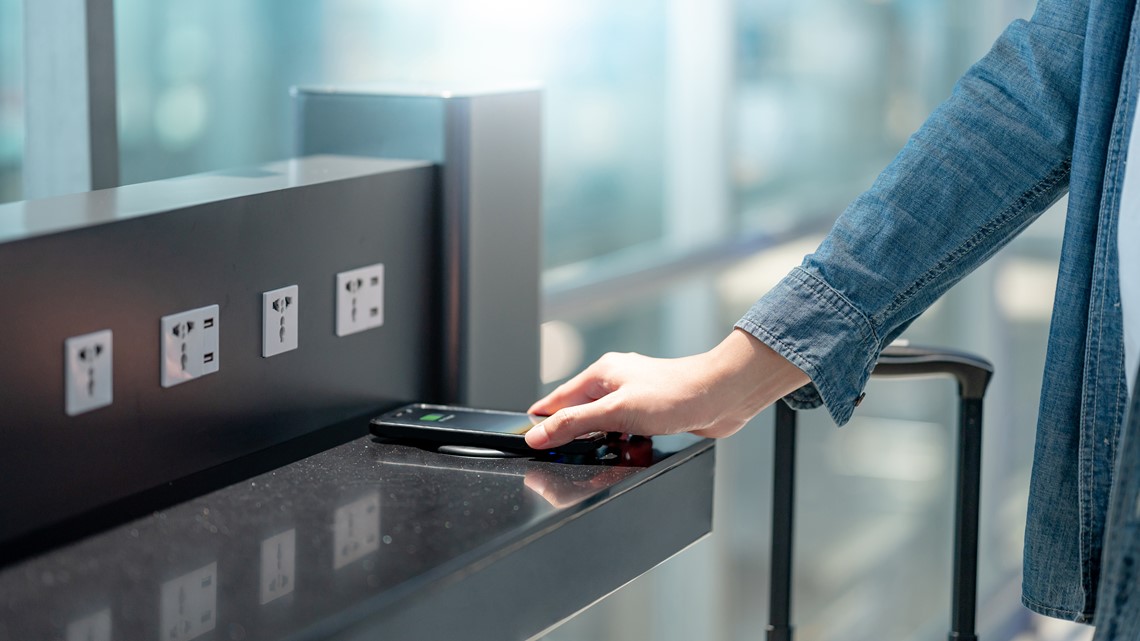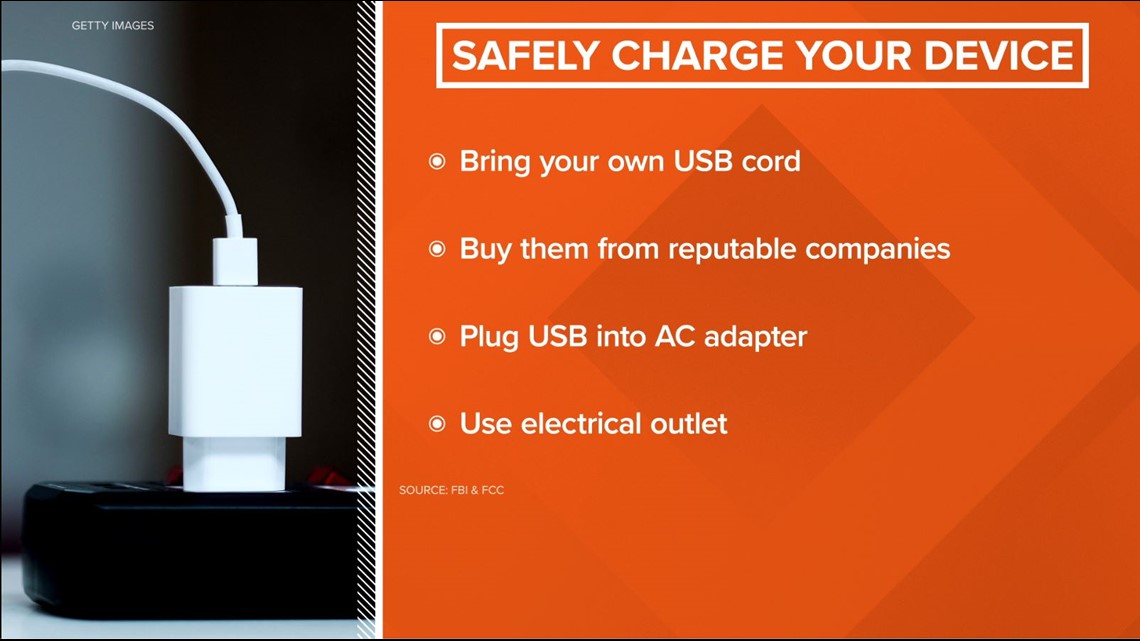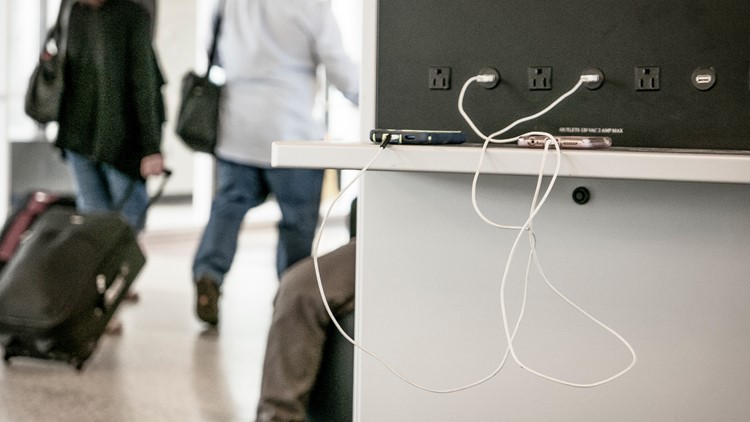PORTLAND, Oregon — The FBI and the Federal Communications Commission are warning of a new way to get your personal information stolen now that some people are getting more comfortable traveling again. It's called "juice jacking."
It could happen when you plug into one of those public USB charging ports like you see at the airport or even a hotel room nightstand.
This one centers on malware. That's "malicious software" and much like an illegal card skimmer on an ATM or gas station pump, hackers can install it inside regular-looking USB charging ports.
This hack preys on all of us desperate for more battery life when we're on the road. Once you plug your phone or computer in, just using USB, you could be infected by that malware, which can then lock you out of your device, watch as you type in passwords or log into your bank or medical accounts. It either can be downloaded from afar by the bad guy, or picked up from the spot later.
It's called Juice Jacking because USB is a connection that not just charges your devices, but is a back-and-forth data transferring system. It's how you can easily move around photos, videos or documents from one computer to another.


But public spaces like airports, train stations and your hotel room nightstand or lamp aren't safe.
Beth Anne Steele with the FBI office in Portland explained how it can happen: "It could be the person who stayed in the hotel room three weeks before you were in there, you just don't know. It's best to be safe. No system or set of actions you take are 100% guaranteed to keep you safe, but the more barriers you put up the better."
Nobody had heard of Juice Jacking until exactly a year ago, when the Los Angeles County District Attorney's office held a press conference ahead of the 2019 holiday travel season.
Even a year later, there are no real documented cases of it happening. Prosecutors cited a study that showed what are known as "white hats," or ethical hackers who seek out weaknesses for the public good, found juice jacking of USB ports is definitely possible.
So what do you do if you need a charge on the road? Bring your own USB cord, and buy them from reputable companies. Don't use free, cheap ones you get at a conference or a convenience store. Plug them into an AC adapter, then into the electrical outlet. Those do not access data, just power.


The FBI also warns of joining public WiFi networks like a coffee shop or the airport or a business. Bad guys can spoof, or make up the name of an open network that looks legit, and you join it and they can see everything you do. Try and just use your data plan or get a virtual private network or VPN to encrypt the data you're sending and receiving.
If you do find you're a victim of juice jacking, report it to the Internet Crime Complaint Center so the feds can pool victims together to make a case.



